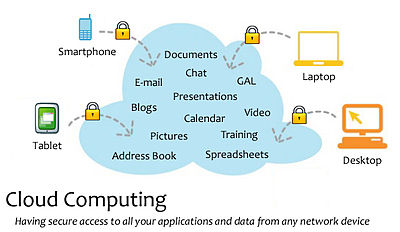AT&T is currently pursuing approval of the acquisition of T-Mobile, the smallest of the 4 nationwide cellular carriers. It's becoming a heated topic in the telecom world gaining more opponents and supporters. In defending the deal AT&T is trying more and more tactics as
Consumer Reports reported that AT&T thinks that less competition means lower prices.
AT&T's newest argument is that T-Mobile is quickly becoming irrelevant so the purchase of the fledgling company will hardly change the competitive landscape. When it comes to the nationwide carriers there are two types of technology that is used, GSM and CDMA. With a successful purchase of T-Mobile there will be only one GSM option, AT&T
Becoming the only GSM provider will this be enough to consider AT&T a monopoly?
There is the current debate in Washington on whether or not the purchase will at the very least create a duopoly. This of course considers Sprint as irrelevant making Verizon and AT&T the only two viable options. The question is though how much choice do customers need and what level of competition will keep prices at reasonable levels.
AT&T says that consolidation will create efficiencies thus keeping costs of operations at bay. The problem I have with that logic is Sprint/ Nextel, Cingular/ Suncom, Cingular/ AT&T, and Verizon/ Alltel. Any merger has it's own set of problems and at the very best has only a moderate amount of issues.
In a
Fierce Wireless story AT&T rebutted it's most vocal oppent, Sprint by saying "To hear the opponents tell it, T-Mobile USA--with approximately 11 percent of subscribers nationwide, steadily declining market share, and no clear path to LTE--is all that stands between today's 'era of competition and growth' and 'an entrenched, anti-competitive duopoly.' (Quoting Sprint's filing) is implausible, to say the least,"
I agree that the writing is on the wall for T-Mobile, losing 99,000 subscribers in their first quarter this year is a very bad omen.
But buying T-Mobile is not the caveat to an anti-competitive climate but the continuation of one. Wireless subscribers face very little choice when looking at a nationwide provider. Most of the time the pricing structure is the same and varies little in the amount of minutes received.
Another frustrating aspect of the wireless industry is the "Lemming Effect." When one carrier increases the price or takes away what a customer gets then the others follow suit. Recently Verizon Wireless eliminated their 1 year contracts because their biggest competitor, AT&T, hasn't offered 1 years for quite some time.
T-Mobile hasn't been a true competitor but it has been a representation of what this industry needs which is an economy carrier. The hurdle for a discount provider is coverage, what every mobile subscriber wants. If a carrier can't be profitable then it can't reinvest in it's network which was a deathblow to T-Mobile since they have no hope of upgrading to LTE or 4G if you prefer.
Sprint is in a weird gray zone, they're not really a discount carrier but then again they're not a premium one either. Dan Hesse has done an amazing turn around job with Sprint but now it's gotten trapped in a vortex of multiple strategies. If Sprint decides to take hold of the discount position then they could own that space as T-Mobile leaves a void. Sprint doesn't have the greatest network but they do have one that with the right pricing structure could continue to nip at Verizon and AT&T's subscriber base.
But that's it! We're now talking about just three providers, 2 of which are almost identical except one has lousy service. So what's left?
For the carrier that got booed off stage at E3 when they were announced as the exclusive wireless provider for the newest portable playstation device, they will probably be able to buy their way into the largest carrier spot. Verizon and Sprint will acquire the ticked off T-Mobile customers who will refuse AT&T.
And the one big loser in this anti-competitive climate will be the wireless customer.


